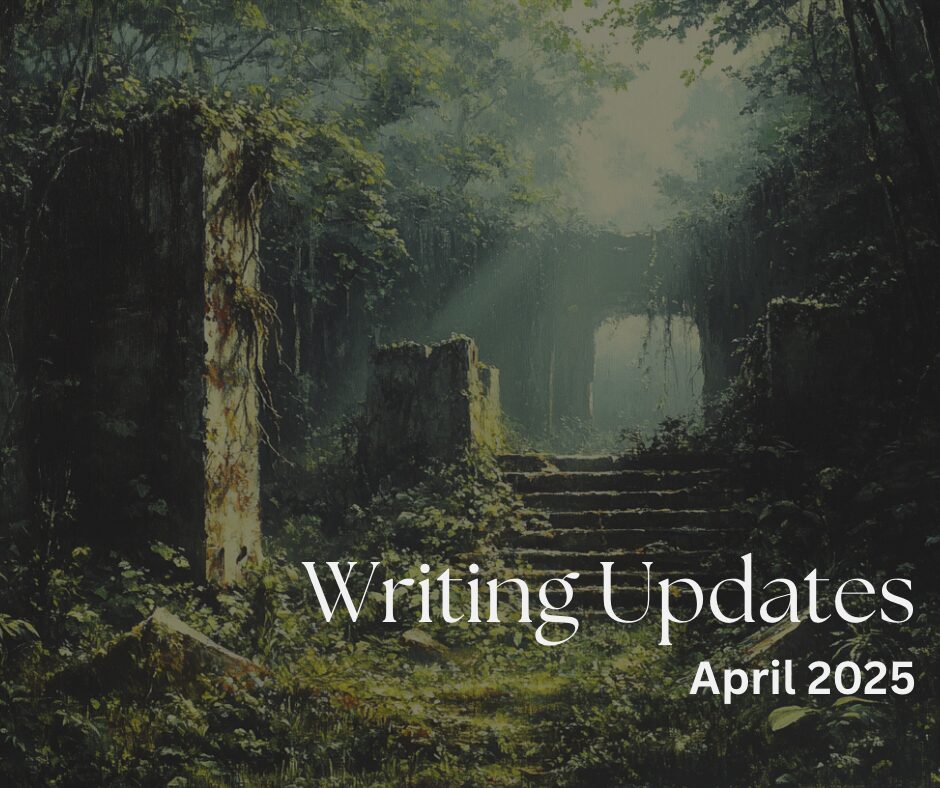Have you ever run a 5k? I’m not a great runner, but every so often, I join in one of the many Turkey Trots or Day of the Dead 5k’s. A few months before, I usually start a jogging plan, get derailed by illness, and show up at the race, ready to look ridiculous plodding along as the Flash flies by me.
On the far end of the running spectrum, I have a friend who recently finished her first 50k. She worked for months to prepare for that race. Sometimes she had to start her run at 3 am in order to get it done before she had to start her day. But when she finally did her 50k race, it wasn’t all that bad. She crushed it.
Writing is a lot like running. If you think about a short story, around five thousand words, as the 5k race, then writing a novel is more like that 50k. You can’t just sit down one day, knock out a novel in half an hour, and call it good. It takes consistent effort over a long period of time to finish a novel, usually from a few months to many years.
In this world where everything is instantaneous and we’ve been trained by technology to want stuff done NOW, how on earth are we supposed to stay motivated for that long to finish a novel? After all, we may love the writing process, but we’re still human. We need a little something to help us stay motivated despite the months and months of solitary, potentially unappreciated work.
Writing a book may be a long and difficult task, but there are thankfully plenty of things you can do to help you stay motivated while writing your novel.
1. Take Care of Your Physical Well-Being
Ensure you’re getting enough rest, exercise, and nourishment. I’m putting this at the very top of the list because I think it’s the most important thing you can do as an author to keep you motivated. As someone who suffers from depression, I can attest to how my physical well-being directly influences my mental well-being. My dad has an acronym that I’ve found quite helpful:
H: Hungry
A: Angry
L: Lonely
T: Tired
If you are any of these things, stop what you’re doing and fix it. Eat a sandwich, do some meditation, find a friend to chat with for half an hour, or take a nap. When your body is happy, it’s a lot easier for your brain to be happy. This can really help you recover your motivation to keep writing that novel.
2. Set Realistic Goals
Break down your writing goals into smaller, manageable tasks. You know the saying “How do you eat an elephant? One bite at a time.” Well, writing is the same. If you only look at the whole thing at once, you’re more likely to panic and not know where to start than if you look at it as a series of smaller tasks (outline, rough draft, edits, world building, characterization, character arcs, each chapter, each scene, each paragraph, etc.).
Hang up your list of goals somewhere you can see it and actively mark off tasks as you go. This will let you keep track of your progress and give you a visual to help you see exactly how much you’ve accomplished.
Celebrate each one of those goals. It doesn’t have to be a lot, but making a ritual out of it that you look forward to will help you stay motivated. I like to go for a walk once I finish writing for the day because it feels great to stretch my legs after sitting for so long. After completing a rough draft, I take some time off from writing or editing that book to give my brain a break. Instead, I try to write a short story or a fun novel. Some authors go on vacation once they’ve turned in their final manuscript.
3. Create a Writing Schedule
Establish a consistent writing routine. Some authors swear by making sure they hit a certain word count every single day. Others of us (me!) have to fit their writing around other responsibilities like a job or family, and a specific word count doesn’t always work. My recommendation is to write something every day or every week on the same day. It doesn’t matter if it’s five words or fifty or five thousand. Just write something.
In addition to writing a handful of words each day, every Thursday, I leave my husband to deal with our toddler’s bedtime routine to escape to Starbucks. I get a cup of hot chocolate and sit there typing away for about two hours. Sometimes I get a lot done, sometimes not. But it’s a routine that I really enjoy that helps me maintain the momentum and motivation I need to keep plugging away at a novel.
4. Track Your Word Count
Keep a record of your daily or weekly word count. In addition to keeping track of your progress with your goals, keeping a running tally of your word count can help you keep up your motivation while writing a novel. It’s incredibly satisfying to see the total word count go up each day. I love it when it gets past 70k words because I feel like I’m actually getting somewhere.
5. Mix Up Your Writing Routine
If you feel like you’re stuck in a rut, maybe try changing your writing environment, writing at different times of the day, or experimenting with new writing tools. Variety can prevent monotony and rekindle your enthusiasm. Do you always use a computer? Maybe switch it off and try writing with a cheap fountain pen and notebook for a change.
A few years ago while participating in NaNoWriMo, I fell behind and was struggling to catch up. I drove over to a local park with my computer and camped out on the grass for several hours. I managed to write about 6k words that day, or about three times as much as I usually write.
6. Read Books
Why do we write? Many of us write because we love books, have read a million of them, and want to add our story to the universe. Sometimes we forget this while we’re in the weeds of writing. Take a break to just pick up a book, relax in your favorite alternate universe, and chill with someone else’s characters for a bit.
It’s amazing how letting your brain relax really does help you get excited about writing again.
7. Take Breaks
Don’t forget to give yourself breaks. I’m not sure how many different ways I can say this. Whether you take a break to eat a sandwich, take a walk, or read a book, just do it. Burnout for authors is a real thing and it’s very common. Writing a novel can be an incredibly taxing endeavor, and if you don’t give yourself time to relax, you can destroy your love of writing and storytelling. You can also make yourself sick, which will only slow down your momentum more.
Stepping away from your work and allowing your brain to let go of your story for a short time can help prevent burnout and give you a fresh perspective when you return.
If you’re worried about losing your momentum by stepping away from your story, rest assured that your brain is an amazing organ that can solve problems even when it seems you aren’t thinking about your story at all. I can’t tell you how many times I’ve been driving around town, listening to music, and all of a sudden I’ve figured out how to get around a problem in a story.
8. Address Story Problems
While writing the beginning of the sequel to Muspell’s Sons, I was having difficulty staying motivated. I just couldn’t get into it. At about the same time, I decided to watch Brandon Sanderson’s lecture on story structure. Using what I learned in that lecture, I took a good look at the structure of my story and discovered that I didn’t really have a good, solid framework. I had an outline, but it lacked the direction and progression that my characters (and I) needed. I completely rewrote the outline and then 30k words to fit into this new version of the story, and the motivation came back.
That’s happened three times now with this story, though thankfully the required restructuring gets smaller each time. But each time I run into not wanting to write and I can’t easily fix my motivation by other means, I look to the story to see if there’s some reason why the story itself isn’t flowing the way I want.
9. Visual Inspiration Board
Create a visual inspiration board. It can be photographs, postcards, sketches, quotes–anything that inspires you to write your story.
My version of this is a digital collection of images that I’ve pulled off the web and generated with Midjourney that are the inspiration for my characters and my world. Each book that I’ve written, published and unpublished, has its own “board.” No one but me sees them. There are photos of salt mines, paintings from Magic: The Gathering cards, concept art of video game characters, photos of tanks, weapons, ancient Samurai armor, Art Nouveau dresses and buildings, maps, hairpins…you get the idea. Anything that can visually spark my imagination goes there.
10. Self-Compassion
Writing a novel is tough. It takes a lot of concentration over a long period of time. Try to focus on progress rather than perfection and give yourself the credit you’re due. Remember that most people only ever dream of writing a novel, while you are actually doing it!
11. Join A Writing Community
Connect with other writers through online forums, writing groups, or social media. Sharing experiences and receiving support from like-minded individuals can be incredibly motivating for some people. I say this with a couple of caveats: 1) Not all writers like the interaction, and 2) Take everything anyone says about your writing with a grain of salt. Look at who is saying it, consider how valid the critique is, and never ever lose your voice.
I have a small group of people who I trust to look over my work who enjoy the type of stories I tell. I haven’t had much luck with other writing groups. Experiment with writing communities and see what works best for you.
Conclusion
I hope some of these ideas help you hang onto that motivation! Staying on track for the duration of a novel is tough, but finishing that novel makes you feel like you’ve just scaled Mt. Everest. It’s an awesome feeling. Good luck, fellow writer!


